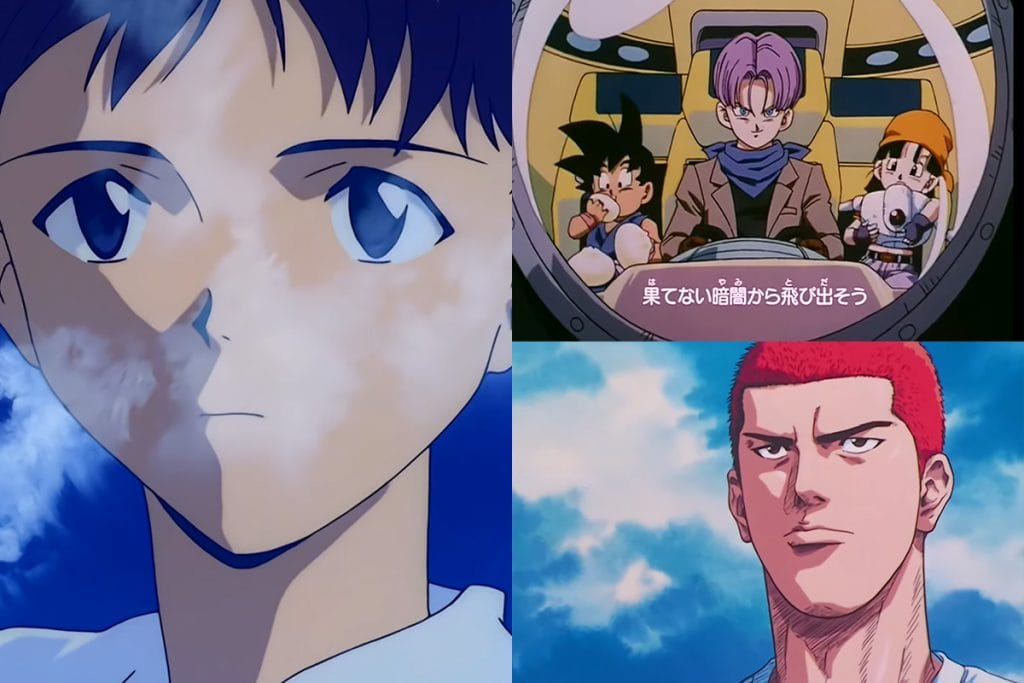

Anime isn’t just a genre of media. It’s an entire ecosystem unto itself. This is evidenced by spin-offs, video games, plushie toys, cosplay, and more. Another crucial element is anime songs, also affectionately called “anisongs.”
Some might say the opening (and closing) theme of an anime is just as important as the content of the anime itself. True to form, anisongs either become long-standing karaoke classics or quickly forgotten novelties.
In this guide, we look at the best anime songs from a variety of eras.
“Ai o Torimodose!!” by Crystal King from “Fist of the North Star”
Song year: 1984
An oldie but a goodie. “Ai o Torimodose!!” was the theme song of the popular and ultraviolent post-apocalyptic 1980s manga and anime series, Fist of the North Star. Its protagonist, Kenshiro, is like Bruce Lee meets Yūsaku Matsuda from the Mad Max film series.
No one grew up in the 80s and even 90s who isn’t at least familiar with the refrain “YOU wa SHOCK,” from this song which is a nonsensical phrase in English and Japanese, but hey… it sounded cool and was easy to shout.
Mixing hard rock with dramatic orchestral elements befitting the anime’s grave and serious tone, you could say that the song was a little ahead of its time. It would be these qualities that would make it a karaoke classic too.
But it was only just beginning for Fist of the North Star, because additional bangers were to follow in the series, even if they didn’t ultimately become quite as recognizable as Crystal King’s “Ai o Torimodose!!”
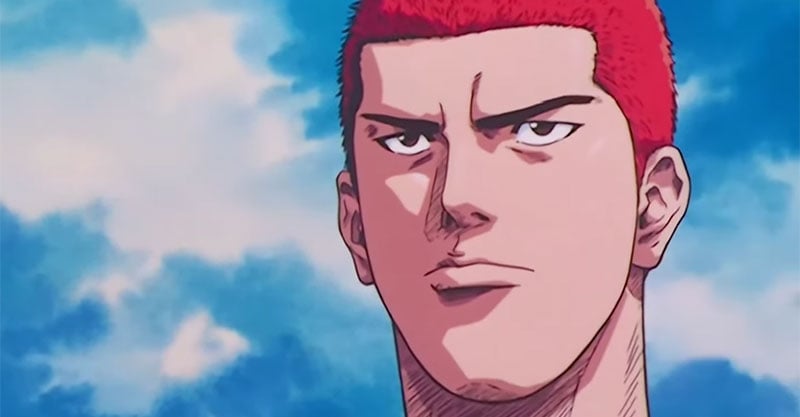
“Tough Boy” by Tom Cat from “Fist of the North Star”
Song year: 1987
Ushering in the next phase of the Fist of the North Star anime series (after the “Ai o Torimodose!!” era) was this upbeat 80s Van Halen-esque metal banger, Tom Cat’s “Tough Boy.”
At the advent of this theme, the story would pick up where a grown-up Rin and Bat would reunite once again with Fist of the North Star protagonist Kenshiro on his perilous journeys, which would inevitably be met with increasingly challenging foes to surmount.
The song gave the anime a slightly less serious tone while bringing the same intensity, duality, and sadness that marked the entire series, making it another must-have in anime history. While it may not make it into many top 10 lists, it almost always makes an appearance in the top 150.
“Cha-La Head-Cha-La” by Hironobu Kageyama from “Dragon Ball Z”
Song year: 1989
Opening the first 199 episodes of the infamous Dragon Ball Z (one of the most important anime in anime history) in Japan was this, Hironobu Kageyama’s 15th single, the nonsensical “Cha-La Head-Cha-La.” Even if you didn’t like it at first, the song couldn’t help but grow on you with time.
As the story goes, the original airing of Dragon Ball Z was notoriously slow, with creator Akira Toriyama falling ill as networks found every excuse possible to elongate episodes or delay them for weeks on end.
A rare thing occurred during the epic Frieza battle, with the anime series catching up to the manga series (meaning the next part of the story had yet to be written). This is where all the “powering up for an entire episode” memes come from.
The much improved and better-paced Dragon Ball Z Kai would come out in 2014, though, so everybody wins?
“Cha-La Head-Cha-La” is delightfully 80s and is quite heavy on the synthesizer layers underlined by era-appropriate pinched guitar harmonics. Most who’ve heard it probably have a love-and-hate relationship with the song, but how can you help but not come around again?
If nothing else, Dragon Ball Z is always good for a Mystery Science Theater 3000-style riff session.
“A Cruel Angel’s Thesis” by Yoko Takahashi from “Neon Genesis Evangelion”
Song year: 1995
Yoko Takahashi’s “A Cruel Angel’s Thesis” tends to top the list of best anime songs, especially in Japan.
This had something to do with the anime the song was ultimately attached to – Neon Genesis Evangelion. Even if you haven’t seen the bio-machine mecha series, you’ve probably seen its cute female characters in form-fitting space suits (Asuka Langley Soryu and Rei Ayanami).
Deconstructing mecha series norms, the sometimes-metaphorical series makes many references to religious practices and spirituality more generally.
The series is probably best remembered for its controversy, however, including the final two episodes, which most fans found abstract and confusing at best. An alternate ending feature film, The End of Evangelion, was created retroactively to solve this issue.
The anime series also put cosplay on the map, making it a worldwide phenomenon.
“A Cruel Angel’s Thesis” features a bit of a Latin jazz / progressive rock vibe (very trendy in Japan around the time of this song’s release) but is ultimately more pop than rock because of its laid-back vibe.
“Dan Dan Kokoro Hikareteku” by Field of View from “Dragon Ball GT”
Song year: 1996
Dragon Ball GT was ultimately considered a disappointing mess by fans of the series (creator Akira Toriyama was not involved in the writing), but it did bring the series out of the calm before the storm, a battle to save the world, calm before the storm, a battle to save the world see-saw rut it was in.
It might explain why the series only had a modest 64-episode run (though this was common with many anime series at the time). It is considered a slice of brainless fun, though, so if you don’t think too hard, GT can indeed be an entertaining ride.
The Japanese power pop intro song, “Dan Dan Kokoro Hikareteru” is nevertheless remembered very well by anime fans, and it usually finds a spot in the Japanese top 10 anime song lists.
“Genesis of Aquarion” by AKINO from “Genesis of Aquarion”
Song year: 2005
AKINO’s “Genesis of Aquarion” doesn’t exactly strike me as the ideal choice for an anime series (of the same name) about humanity’s battles with the technologically advanced Shadow Angels.
The song owes more to musicals and choral compositions than to pop or rock and is indeed very vocal-heavy. That said, the anime adaptation features a more upbeat delivery befitting the medium.
The song usually ranks in the top 10 best anime songs in Japan, and “everyone knows the chorus” is the rallying cry of the Japanese faithful.
The anime series had a short run, from April 2005 to September 2005 with 26 episodes. Its story wasn’t its strongest feature, and it failed to find its own identity. The series has been praised for its musical score, animation style, and mecha designs, however.
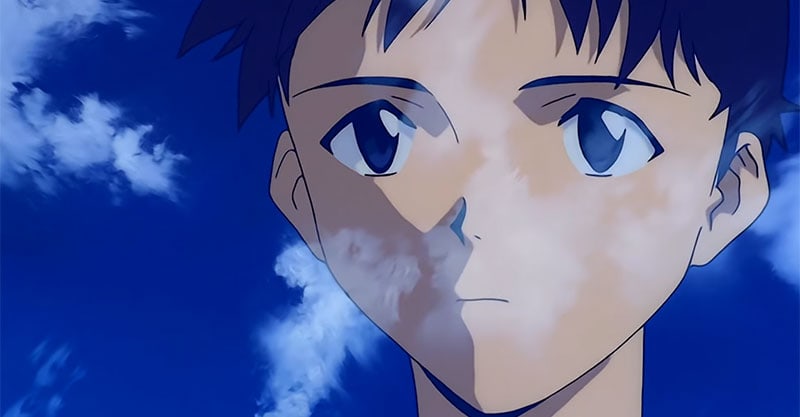
“Get Wild” by TM Network from “City Hunter”
Song year: 1987
Japanese new wave band TM Network is sometimes thought of as a one-hit wonder, but if you’re going to be remembered for one hit, it may as well be for the ending theme for the popular anime series City Hunter, “Get Wild.”
With shades of Duran Duran, Depeche Mode, and similar 80s acts, the song is certainly a product of its time, which in this case is a good thing.
TM Network, however, features the illustrious Tetsuya Komuro, and that is probably the band’s saving grace, as they have returned to record and perform together after numerous hiatuses. Komuro has produced the likes of Namie Amuro, Ami Suzuki, Ryoko Shinohara, and Hitomi, among many others.
“Sekai ga Owaru Made wa…” by WANDS from “Slam Dunk”
Song year: 1995
By legendary Japanese rock band WANDS, “Sekai ga Owaru Made wa…” (literally “Until the World Comes to An End”) acted as the ending theme for the anime series Slam Dunk, which had a 101-episode run from October 1993 to March 1996.
If the power ballad sounds as though it might belong in the 80s (in the music video, you can see the band dressed like Guns N’ Roses), that’s because Japan was a little late to the game with hair metal, and grunge never penetrated their culture the same way it did in North America.
(But they still know who Nirvana is.)
Though the band has gone through some member changes, after a nearly 20-year hiatus, WANDS reunited in 2019 and remains active to this day.
Overall, “Sekai ga Owaru Made wa…” is the perfect song for an anime and is a certified karaoke favorite besides.
“Sobakasu” by Judy and Mary from “Rurouni Kenshin”
Song year: 1996
Japanese rock band Judy and Mary formed in 1991 and had a prolific 10-year run to 2001. The band is marked by the brilliant vocal work of vocalist and lyricist Yuki, as well as the sizzling guitar work of guitarist, lyricist, and composer Takuya.
The cool thing about Japan is music featuring “busy” guitar work, like that heard on “Sobakasu” can play as pop music nationally, even if it would never be accepted as the same in North America.
The song acted as the opening theme to the popular anime series Rurouni Kenshin, also known as Samurai X, and is a karaoke go-to. The series had a 95-episode run from January 1996 to September 1998.
“Odoru Pompokolin” by B.B.Queens from “Chibi Maruko-chan”
Song year: 1990
“Odoru Pompokolin” (or “Dance the Pompokolin”) was the J-pop group B.B.Queens’ debut single and the ending theme for the anime series Chibi Maruko-chan centered on the ordinary everyday life of Momoko Sakura, nicknamed Maruko.
No TV viewer could have escaped this anime series or its ending theme. I’ve often remarked that Cyndi Lauper’s “Girls Just Want To Have Fun” is one of the happiest songs of all time, but “Odoru Pompokolin” comes close, with the main difference that “Odoru Pompokolin” is far campier.
In retrospect, B.B.Queens’ is a little like The B-52’s, as the song demonstrates.
“Makafushigi Adventure” by Hiroki Takahashi from “Dragon Ball”
Song year: 1986
As the theme song for one of Japan’s most successful manga and anime series, “Makafushigi Adventure” played as the opening theme song for none other than the original Dragon Ball (before Goku begins learning about his true origins).
The song was typical of 80s Japanese music, featuring drum machines, synthesizers, and depending on the version, orchestral elements.
For fans of Dragon Ball, it’s impossible to forget, and it’s well suited to karaoke night too, thanks to its relatively simple melody.
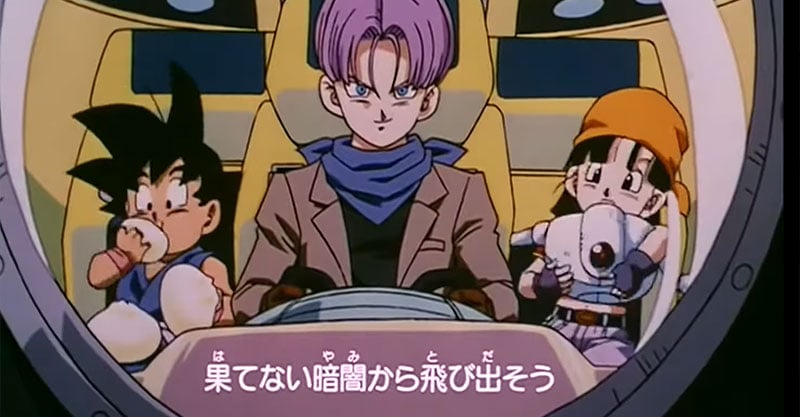
“Pegasus Fantasy” by Make-Up from “Saint Seiya”
Song year: 1986
“Pegasus Fantasy” was Japanese hard rock and heavy metal band Make-Up’s fourth single. This song was used as the theme song for the first half of Saint Seiya, which ultimately had a 114-episode run from October 1986 to 1989.
For those who don’t like 80s hard rock, I suppose “Pegasus Fantasy” would be a throwaway, but otherwise, this song kicks some serious butt and is even comparable to Survivor’s “Eye of the Tiger” in composition and intensity (its tempo is also amped up).
Make-Up had a steady run from 1983 to 1987 with a few scattered reunions in the 90s and 2000s. They will always be remembered best for their work on Saint Seiya.
And whether you butcher it or nail it, “Pegasus Fantasy” is a fun karaoke number.
“Giri Giri Chop” by B’z from “Detective Conan”
Song year: 1999
It wouldn’t be too much of an exaggeration to say that the banner of J-rock has been carried by none other than one of the best-selling artists anywhere in the world, Japanese rock duo, B’z.
Its members have even collaborated with the likes of Larry Carlton, Eric Martin, and Barry Sparks, among others.
It shouldn’t come as any surprise then, that their 26th single, “Giri Giri Chop,” would be chosen as the sixth (and best-selling) opening theme for the long-running and still active Detective Conan (also known as Case Closed).
B’z proved (and continues to prove) that a skilled rock singer and skilled rock guitarist is a match made in heaven and their Van Halen-tinted “Giri Giri Chop” would become another major success in their long line of success streaks.
And it would probably appear higher on best-of lists if it was easier to sing (not for the faint-of-heart karaoke goers).
“Cat’s Eye” by Anri from “Cat’s Eye”
Song year: 1983
Another nostalgic classic, Anri’s “Cat’s Eye” was the perfect choice for the anime series of the same name (it’s almost as if there was a coordinated effort there). Originally released in 1983, the song was updated by Anri and released as “Cat’s Eye (New Take)” later the same year. The song would also be covered by MAX in 2010.
With shades of Paula Abdul and Madonna, the song has a synthesizer-driven, minor-key, upbeat quality to it that would play very well as an anisong. And, of course, it did.
“Cat’s Eye” is relatively easy to sing, making it another must for late-night karaoke excursions.
Anri, by the way, has had a very prolific music career and has remained relevant in the Japanese musical landscape since 1978.
“WE GOTTA POWER” by Hironobu Kageyama from “Dragon Ball Z”
Song year: 1994
The Kageyama = Dragon Ball association would only grow with time, and in the wake of the success of “Cha-La Head-Cha-La,” his help would be enlisted again on a couple of occasions, including this, “WE GOTTA POWER,” which became Dragon Ball Z’s second opening theme.
And some of you are saying to yourselves, “What? There was a second Dragon Ball Z theme?” Indeed.
The song’s title is gobbledegook, but compositionally “WE GOTTA POWER” is very much in the same vein as “Cha-La Head-Cha-La,” to ensure listening audiences would recognize that trademark voice.
I don’t know if “WE GOTTA POWER” is as good as “Cha-La Head-Cha-La,” but it still makes its way into the top 200 anisong lists without effort.
“the Fourth Avenue Cafe” by L’Arc-en-Ciel from “Rurouni Kenshin”
Song year: 1996
L’Arc-en-Ciel’s 30th single, “the Fourth Avenue Cafe,” saw a very delayed release due to drug charges lodged against L’Arc-en-Ciel drummer Sakura. It rose to number five on the Oricon chart upon its official release in 2006.
The song was supposed to come out in 1997 and was even used as the fourth ending theme for the Rurouni Kenshin series. It was removed after a few episodes due to the previously mentioned drug incident.
Yet, fans remember it as a banger and have perpetuated it as a karaoke essential. Honestly, it’s not hard to see why. The song is just that good.
As for L’Arc-en-Ciel, they remain a staple in J-rock to this day, though their release schedule has slowed somewhat.
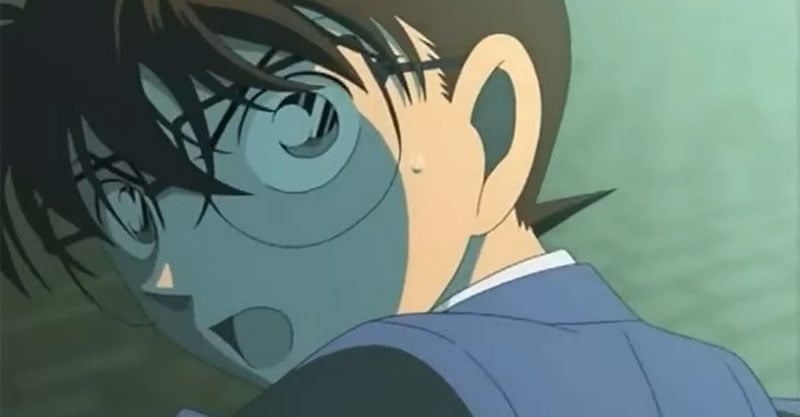
“Anata Dake Mitsumeteru” by Maki Ohguro from “Slam Dunk”
Song year: 1993
Maki Ohguro’s “Anata Dake Mitsumeteru” was her sixth single, and it was used as the first ending theme for the basketball anime series Slam Dunk. It became a much bigger deal than that, though, becoming the third best-selling anime theme of all time.
The song itself can only be heard in the first 27 episodes of Slam Dunk, which also speaks to its overall popularity.
Ohguro said she hadn’t read the entire Slam Dunk series before finishing the song and would later say she wished she had so the lyrical content would better mirror the anime’s storyline.
The song is characteristic of elements often found in J-rock at the time, including the heavy use of synthesizers, a funky, Latin-style beat, heavy guitars, and a guitar solo too.
“Iki mo Dekinai” by Zard from “Chūka Ichiban!”
Song year: 1998
Zard’s 24th single, “Iki mo Dekinai,” was used as the opening theme for Chūka Ichiban!, an anime following protagonist Mao’s journey to becoming a Master Chef in the fictitious era of “The Era of the Cooking Wars.”
Japanese pop-rock group Zard had a run lasting over 15 years, from 1991 to 2007. While they will be best remembered for songs like “Makenaide” and “Yureru Omoi,” you certainly can’t underestimate the longevity of “Iki mo Dekinai.”
Fun fact – singer Izumi Sakai (who was the only constant member of the band) was formerly a model who went by the name Sachiko Kamachi. Decisionmakers thought it best to distance the singer from her modeling past (probably because she had some partial nudes in her portfolio), thus the name change.
The name “Zard” would eventually come to refer to Sakai alone, due to her dominance and prominence within the band. Sakai, unfortunately, would pass away in May 2007 after battling cervical cancer.
“Tsubaso wo Hirogete / Ai wa Kurayami no Naka de” by Zard from “Detective Conan”
Song year: 2008
“Tsubasa wo Hirogete / Ai wa Kurayami no Nake de” is Zard’s 44th single, and the second posthumous release following singer Izumi Sakai’s death.
“Tsubasa wo Hirogete” was used as the theme song for the anime movie Detective Conan: Full Score of Fear. Meanwhile, “Ai wa Kurayami no Naka de” was chosen as the opening theme for Detective Conan, becoming the last Zard song to be used in the series.
The song has an upbeat, minor key rock feel to it, and is laden with some great guitar work.
“Boku tachi wa Tenshi Datta” by Hironobu Kageyama from “Dragon Ball Z”
Song year: 1994
“Boku tachi wa Tenshi Datta” (also known as “We Were Angels”), not surprisingly, is another Dragon Ball Z classic. This song was used as the second ending theme for Dragon Ball Z.
Featuring the familiar voice of Kageyama, “Boku tachi wa Tenshi Datta” is probably one of the more upbeat anime ending themes you will find.
The song features a driving guitar rhythm, huge backing vocals, layers of synthesizers, and a guitar solo, complete with modulation.
“My Friend” by Zard from “Slam Dunk”
Song year: 1996
“My Friend” was Zard’s emotive 17th single. Debuting at the top of the charts, it went on to become Zard’s third highest-selling single. It didn’t hurt that it was the fourth ending theme for Slam Dunk. It seems the Zard = Slam Dunk connection stuck, and that is in no small part due to this classic.
If you’ve heard of Zard, it’s unlikely you’ve never heard of “My Friend,” as it is one of a handful of songs that came to epitomize the band.
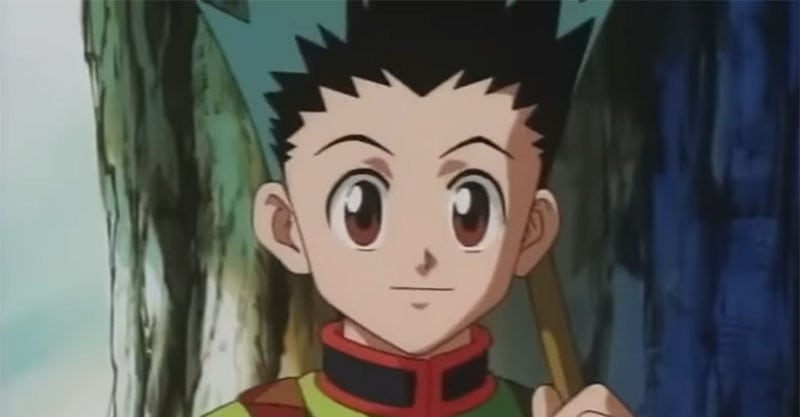
“Yūki 100%” by Hikaru Genji from “Nintama Rantarō”
Song year: 1993
Japanese boy band Hikaru Genji was a big deal in the late 80s and 90s. In their short run, from 1987 to 1995, the group would win over a dozen Japanese music awards and go on to influence countless artists to follow.
“Yūki 100%” would emerge as their 21st single and it was chosen as the theme song for Nintama Rantarō, an anime about the title character who attends a school for budding ninjas, along with his friends.
Fun fact – Nintama Rantarōis the longest running of any anime on NHK, and the series has been going strong since April 1994.
While the singing is nothing to write home about, the musical composition in “Yūki 100%” is the real deal, as it usually is with Japanese music. And you can see why it was chosen as an anime theme – it’s just so happy sounding!
And yes, “Yūki 100%” is also a karaoke staple.
“Sekai wa Anata no Iro ni Naru” by B’z from “Detective Conan”
Song year: 2016
In the 2010s, rock took a bit of a weird detour in Japan, and “Sekai wa Anata no Iro ni Naru” features an unconventional chord progression from start to finish.
Even with its eccentricities, it’s got a bit of a mysterious spy vibe, which seems appropriate. The song was chosen as the 43rd opening of Detective Conan and was also used for the ending of the film, Case Closed: The Darkest Nightmare.
“Ohayou” by Keno from “Hunter × Hunter”
Song year: 2000
Yoshihiro Togashi made a bit of a splash with YuYu Hakusho in the early 90s. It was a little short-lived, however, and Togashi himself ultimately probably wasn’t happy with it, having been forced to pivot the series from a drama focus to a martial arts focus early in the running.
Either way, the series has demonstrated its enduring power with films, live-action series, video games, and more.
Togashi would follow it up with a series he was very happy with, called Hunter × Hunter. Why do I say that? Because he started it up in March 1998 and continues working on it to this day.
The anime’s opening theme was Keno’s “Ohayou.” It’s effectively laid-back power pop, but the song does have a certain charm to it.
“Kimi no Shiranai Monogatari” by supercell from “Bakemonogatari”
Song year: 2009
supercell’s “Kimi no Shiranai Monogatari” (“The Story You Don’t Know”) is another heavy hitter in the realm of anisongs. It was released as supercell’s debut single and was picked up as the ending theme for Bakemonogatari.
The song is heavy on instrumentation, with piano, electric guitar, electric bass, and drums. The song opens with a lone voice and piano but features multiple timely builds. The lyrics deal primarily with unrequited love, and it is heartbreakingly well-written.
Top Anime Theme Songs, Final Thoughts
Japanese music sometimes follows in the footsteps of North American music, but it has long had a vibe all its own. In Japan, the blending and merging of genres is largely accepted, and more complex music and artistry are appreciated.
This is what makes the world of anisongs well worth watching – today, and well into the future.
What is your favorite anime song?
We hope you found everything you were looking for and more.